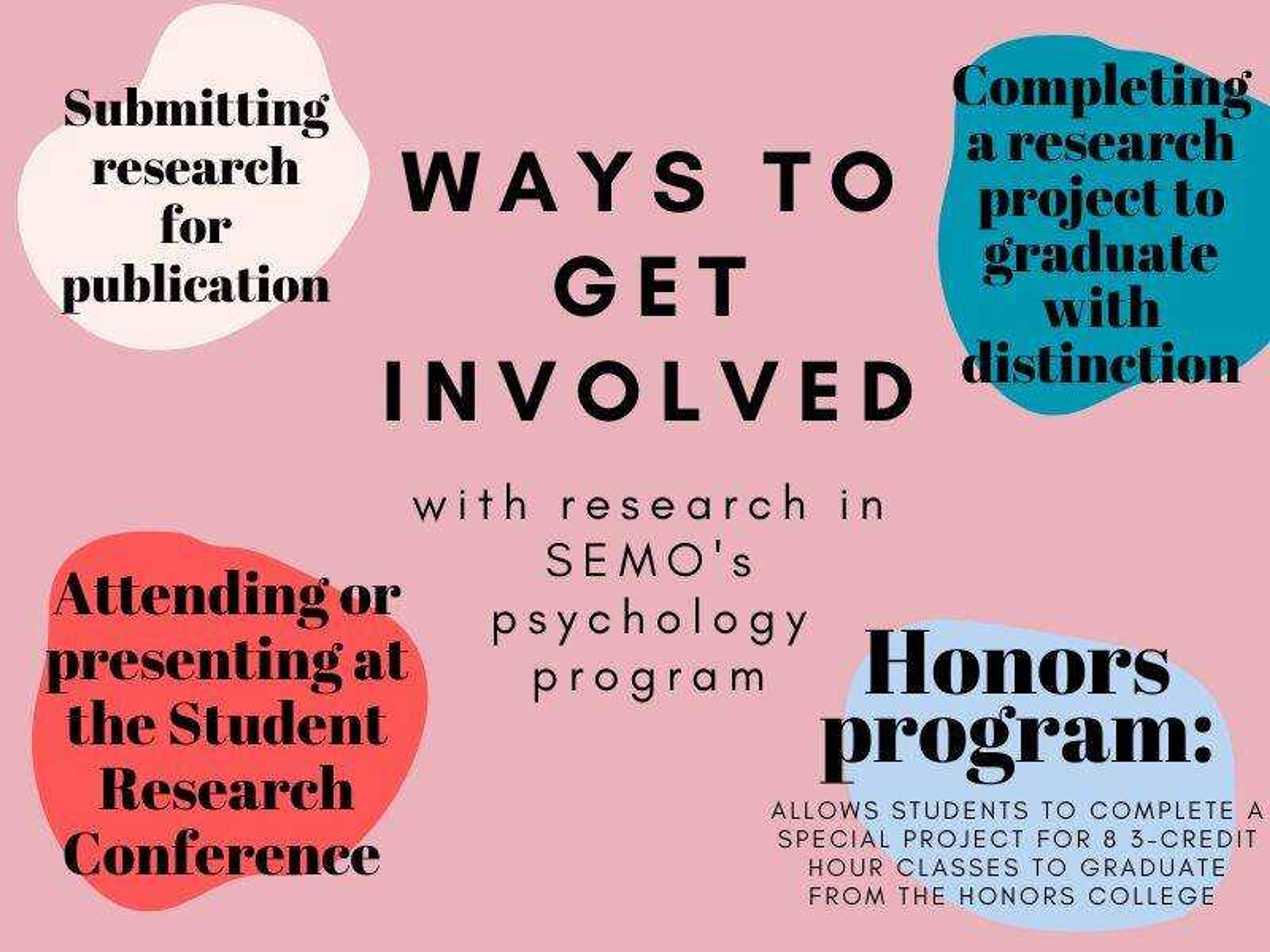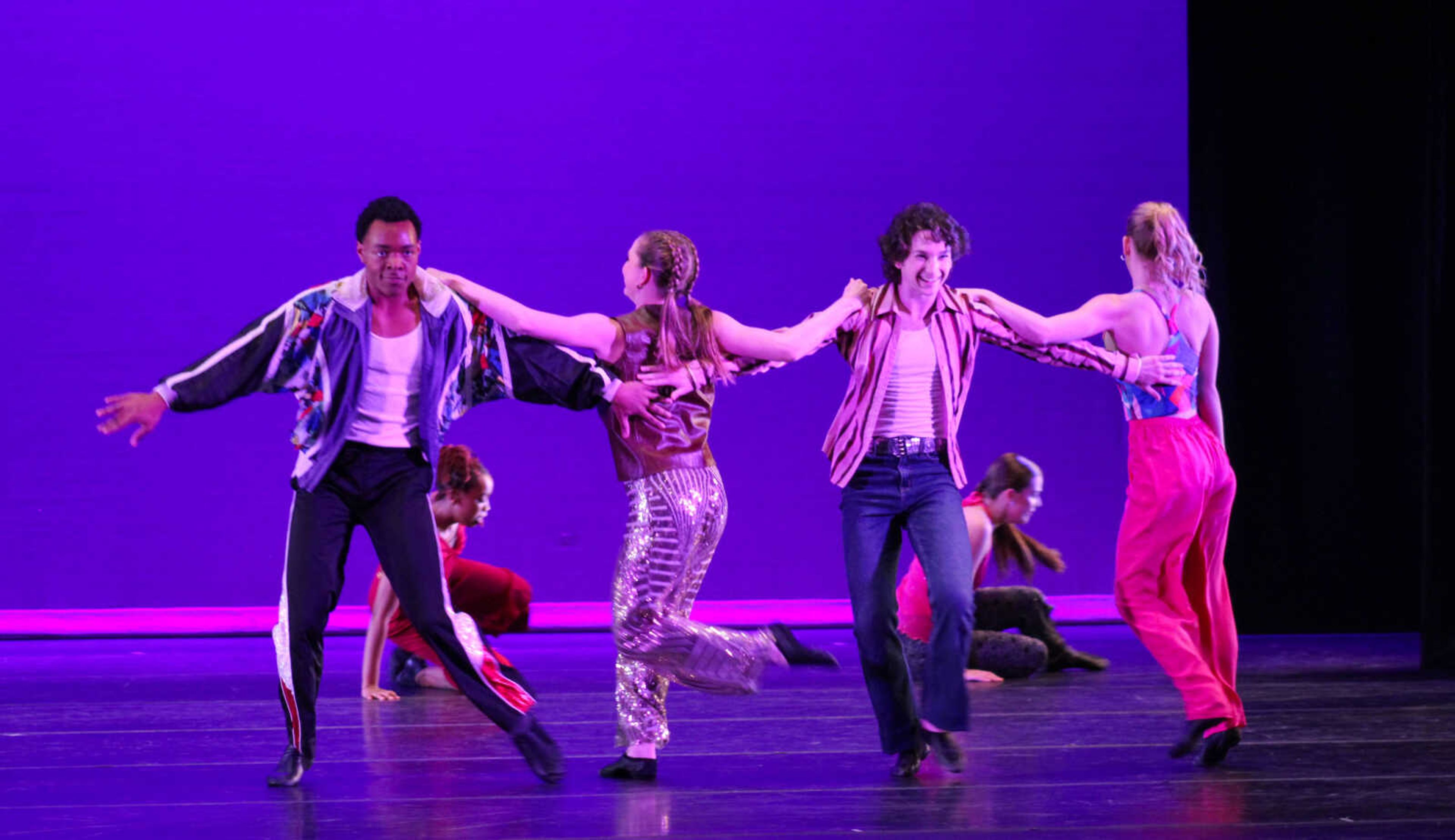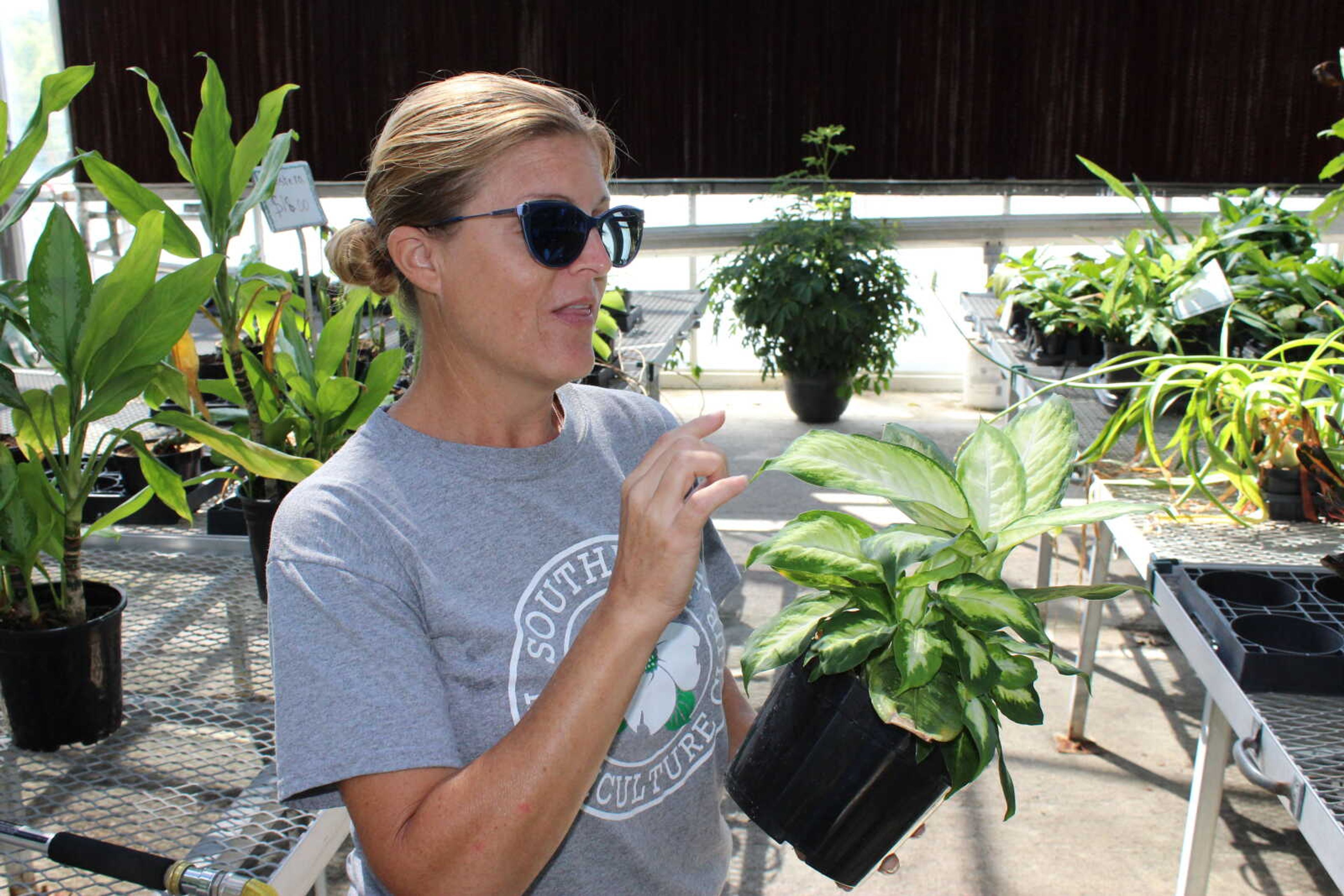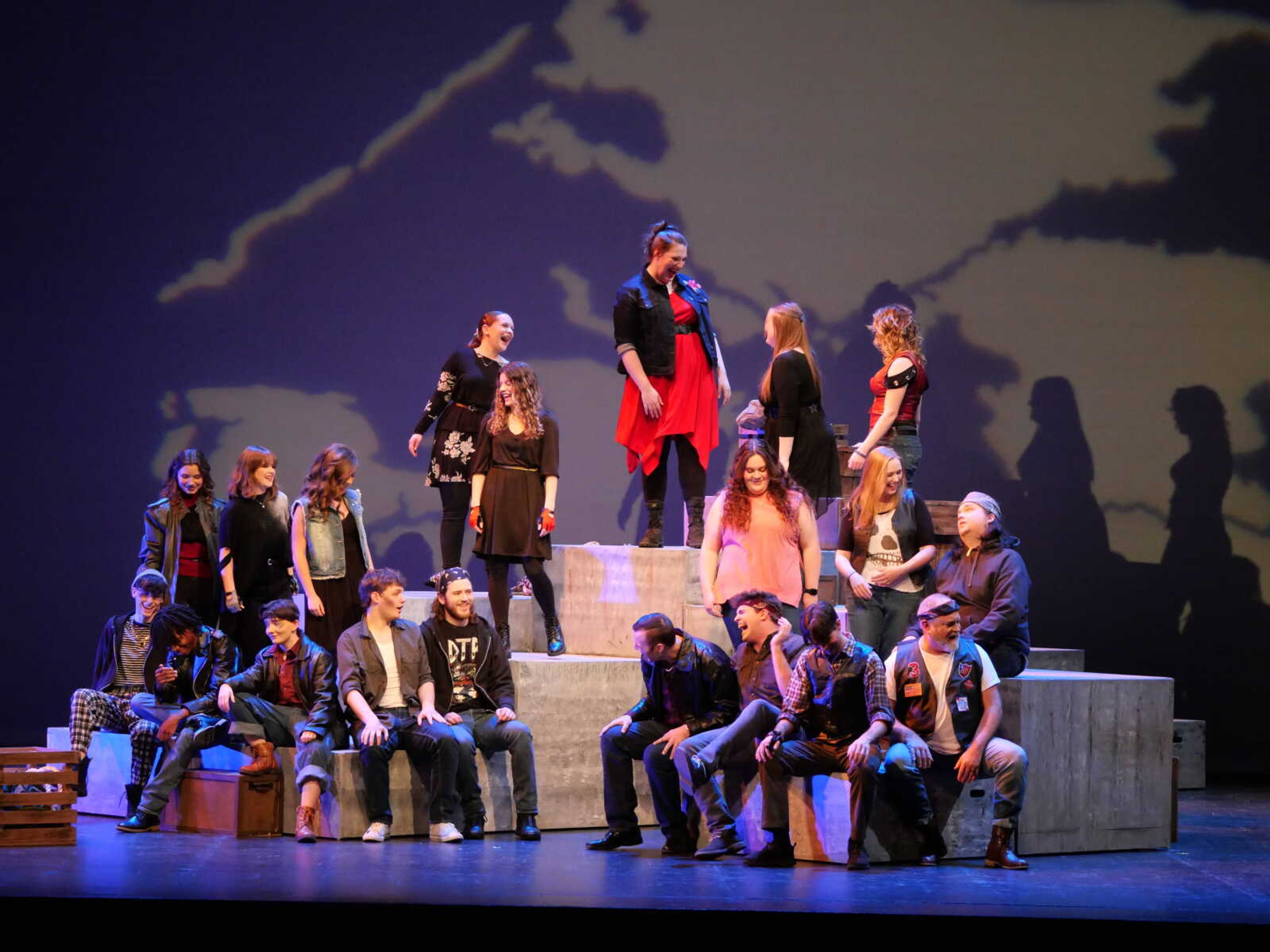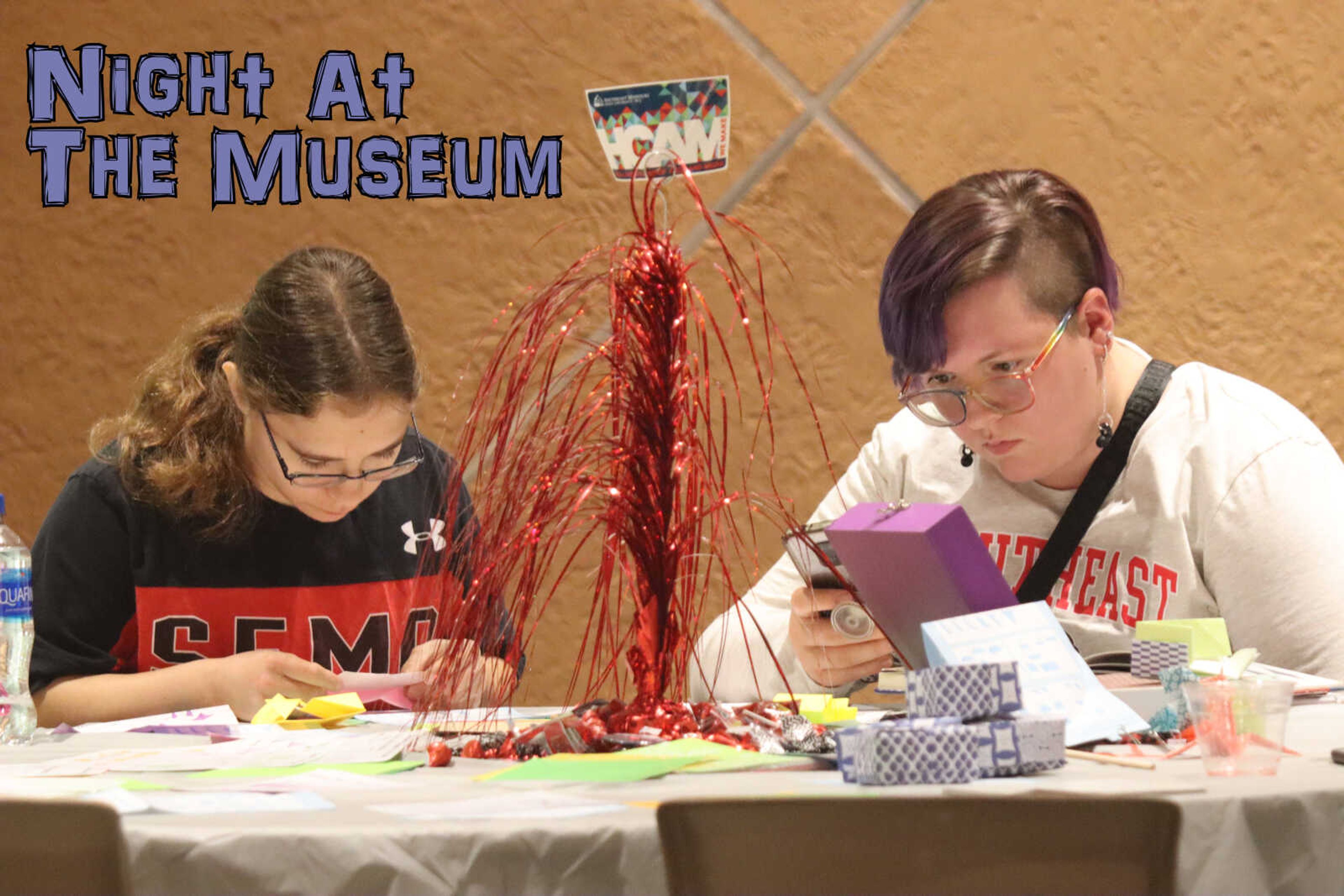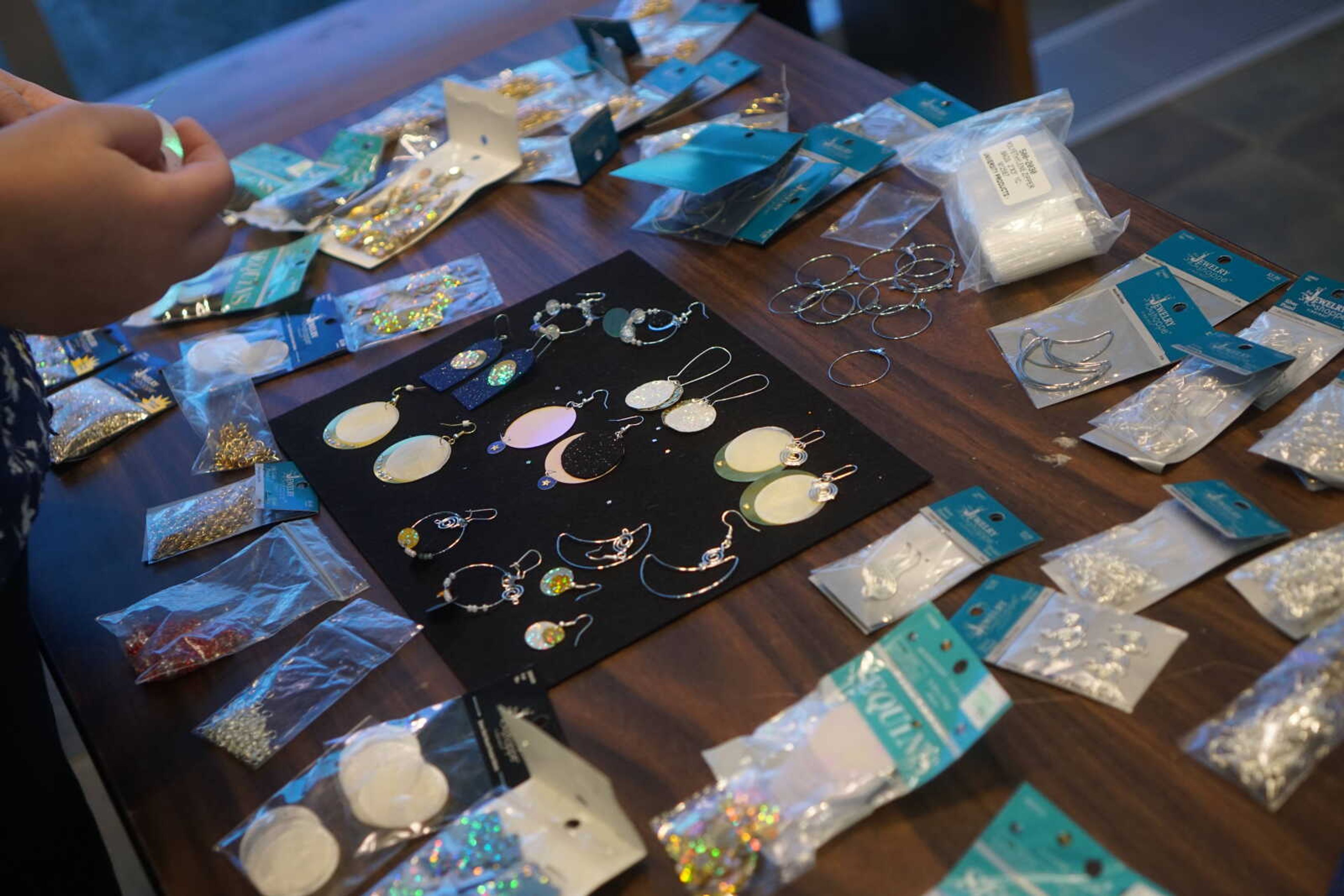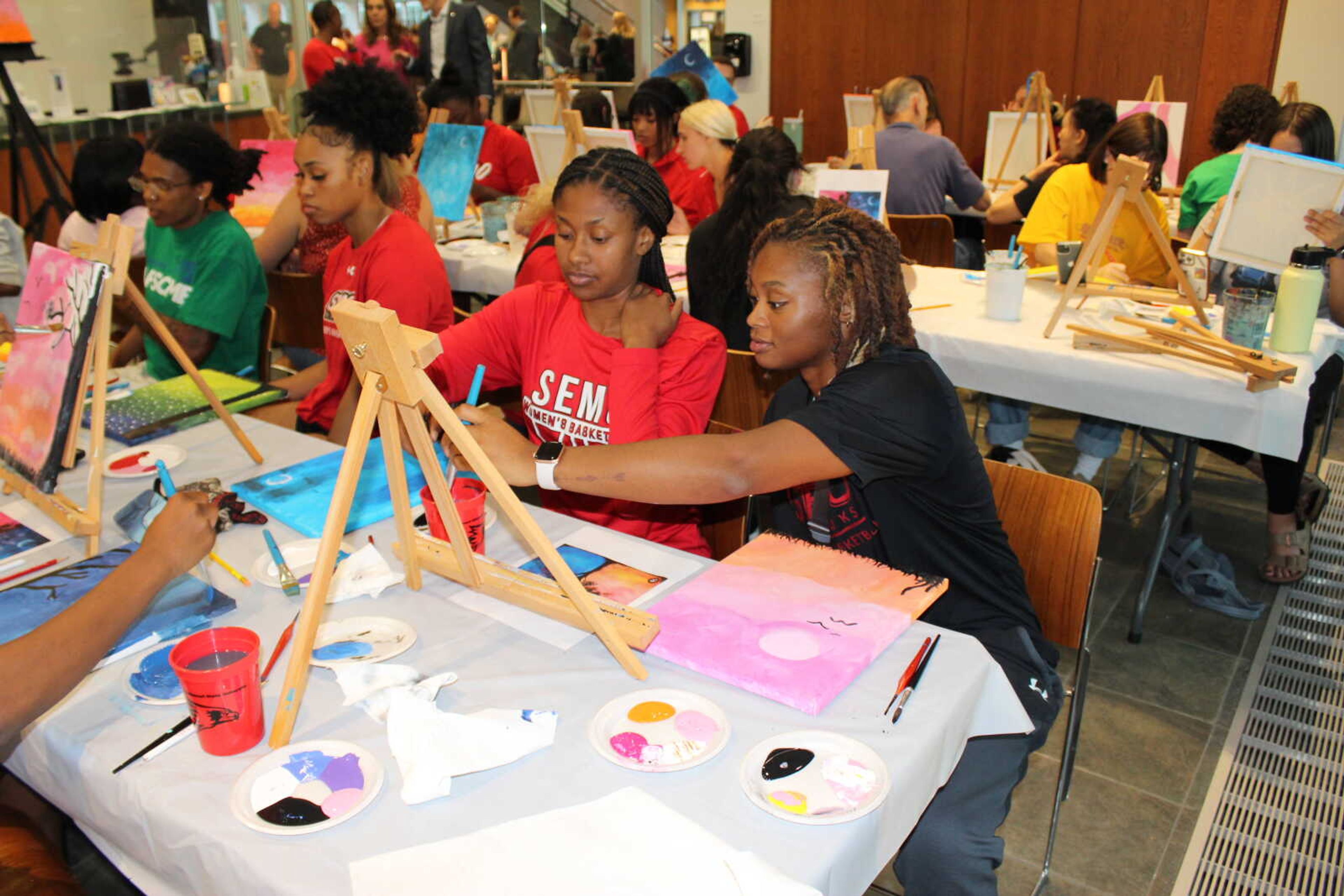For senior psychology majors Steph Conway and Caleb Hitt, the prospect of being able to support others and give them relationship-building tools they never had when they were younger is enough motivation to help them persevere through the process of doing research, which involved months of advanced planning and countless hours of reading, meetings, filling out paperwork and collecting and analyzing data.
When Steph Conway started junior college, her biggest concern was making it through one math class: after more than 15 years of bookkeeping and running a household, she wanted to start small in order to pursue her goal of becoming a substitute teacher.
Skip forward a few years: Conway discovered a passion for psychology, transferred to SEMO and is now deeply involved with activities and pursuits she cares about. Among many other projects and pursuits, Conway is researching family resiliency and is a Court-Appointed Special Advocate (CASA) for teenagers in foster care. Conway’s drive to connect with and help others has opened doors for her that she never imagined before attending college.
“I love the relationships with all the people I’ve met. I really enjoy hearing peoples’ story and knowing more about who they are individually,” Conway said.
A major source of Conway’s desire to improve the lives of families is the lack of structure and support in her own upbringing. One of her goals as a CASA is to provide tools for families to better help children who don’t have a place to call home or anyone to turn to for support.
Conway’s research is helping her fine-tune these tools in order to better support families. Her research will allow her to graduate with academic distinction, an honor awarded for completing a scholarly paper or special project.
Her research modifies psychologist Froma Walsh’s family resilience framework and encompasses three main areas: attitudes, relationships and communication. Conway is focusing on how these factors can be applied to a variety of situations to help families overcome difficult circumstances.
Psychology major Caleb Hitt is also doing research to graduate with distinction. He’s planning to attend St. Louis University, a research-focused institution, in the fall to get a master’s degree in family and relationship counseling. Before starting there, he wants to get some research experience under his belt.
As a child of divorce, Hitt is intrigued by the vast differences between his and others’ experiences and wants to know more about the potential positive and negative outcomes of experiencing a parental divorce as a child.
Like Conway, Hitt hopes to influence the field of family therapy. The goal of his research is to identify key questions therapists can ask clients with divorced parents in order to develop a better understanding of the best treatment path for the client. These questions might include things like how old the client was during the divorce, how their relationship with their parents was at the time and how much conflict there was in the home.
Both Hitt and Conway said they could not have achieved what they have without their research team.
“I’ve realized how important and helpful it is to collaborate with faculty and to go to them to talk about your academic interests and things like that, and your goals in terms of career and academics,” Hitt said.
Scott Brandhorst, the faculty adviser for SEMO’s Student Research Conference, describes himself as a mentor for student researchers. He helps students like Conway and Hitt lean into what’s motivating them to get their degree and explore it to the fullest.
“I always encourage students to engage, research, get more information and expand their knowledge about all the things they get exposed to on a daily basis by being here in college,” Brandhorst said.
Brandhorst’s advice, echoed in the experiences of Conway and Hitt, is for students to let their passion guide their research.
“One of the best pieces of advice that I was ever given when I had to do my dissertation is to do something that you’re passionate about,” Brandhorst said. “Depending on the type of research that you're doing, it’s going to be intense, and going to be driven, so having something you are motivated to spend time with always makes that process more enjoyable.”
For more information about SEMO’s Student Research Conference, click here.
